Some thoughts and discussions from me.
Gooood morning, loves!
I get questions all of the time about using the scale for weight loss. Whether it’s clients who are either encouraged or discouraged by what it says or reader emails, it comes up quite a bit.
[Tweet “Why I Don’t Use the Scale for Weight Loss – via @TrainerPaige”]
Before I get into it, here’s my take on scales for weight loss: If I client has less than 15-20 pounds to lose, I don’t use them.
What I do instead is:
- measurements in inches – at specific points on the body
- progress pictures – with specific guidelines
- and clothing fit
Measurements tell a true picture of what is decreasing in size. Taking progress pictures every 2-4 weeks shows how much progress has really taken place. It’s a better indicator than the mirror, because you see yourself in the mirror every day, and might not notice changes on a day to day basis.
For clothing I typically have my clients choose a pair of “thermometer jeans.” This concept is from the one and only Rachel Cosgrove, and goes like this:
try on a pair of too-tight pants at the beginning of your program. Each week, on the same day of the week, try them on. Every couple of weeks, they should fit better and better.
This one is also the measurement that clients seem to get excited about the most. Each week, I’ll get check-ins from ladies saying something to the likes of, “This pair of pants was too tight on me this spring, and now I can button them easily!”
It’s also the progress indicator (physique-wise, at least) that I also get most excited about, because it feels SO good to be able to confidently wear your favorite clothes 🙂
Now, the reasons I do NOT use the scale for progress indicators are threefold.
Why I Don’t Use the Scale for Weight Loss
1. It isn’t accurate
Yes, the scale measures your weight. It measures the amount of gravity – in pounds – it takes to keep you on this earth. But it also measures:
- the food you ate that day or last night
- the liquid you drank that day
- the water you’re retaining for whatever reason
- your clothing, shoes, and whatever else is stepping with you on the scale
Or, you know, being a snowman.
So even if you weigh yourself on the same day of the week at the same time of the day, it can still be an inaccurate picture. As for water weight: you can carry water weight for a number of reasons, including a weekend or day of eating foods you might not normally eat, eating a meal with a high sodium content, simply drinking water after being in a dehydrated state, whether it’s from sweating, sleeping, or drinking alcohol.
But here’s the most deceiving way that water weight can affect your scale weight: starting a new training program.
I’ll often have a client start a program with me, and lose a couple pounds that first week. Then the second week, they step on the scale and see that their weight hasn’t gone down. Does that mean they haven’t lost any weight? No. Oftentimes, when starting a new strength training plan, we retain water from inflammation from lifting. This dissipates, but can be discouraging to see that second or third week.
Speaking of discouraging…
2. It messes with heads.
For some reason, that number we see when we look down at our feet tends to have an extreme effect on our mood, our day, and our body image. If it stays the same, or heaven forbid, goes up 1/10 of a pound, some ladies allow it to detract from their value; their worth.
Not seeing what we want to see from that silly little number sometimes has the power to send us spiraling down an emotional breakdown — and that’s NOT OK.
For these clients, I typically ask them to take their scale and throw it into their trash can. It’s not worth it, and there are other much better ways to measure progress.
3. It doesn’t differentiate between muscle and fat gain.
I left this one for last, but it’s the age old, often repeated, “muscle weighs more than fat”- ad nauseum. It’s worth being noted, but I will also note that it’s really damn difficult to lose fat and gain muscle at the same time – especially a substantial amount of muscle (AKA – poundS of muscle.) More realistically, we lose body fat, and through strength training, we maintain our current muscle tone – or add to it slightly (this is what most people mean when they say “tone up.”) So while yes, the scale doesn’t discriminate between fat and muscle gains (or loss, for that matter) it’s not realistic that we gained 5 pounds in four weeks when we’re trying to lose fat and all of it is muscle. It’s likely a combination of both – and the other variables that I mentioned in pont #1.
So there it is – why I don’t use scale weight as an indicator of progress. Now, I will say that when I’m working with someone who wishes to lose more than 20 pounds, we will use the scale (so long as it doesn’t mess with their head,) so we can verify we’re going in the right direction and dropping weight.
[Tweet “Why I Don’t Use the Scale for Weight Loss – via @TrainerPaige #fitfluential”]
Tell ME! Do you use a scale? How often, and why or why not?

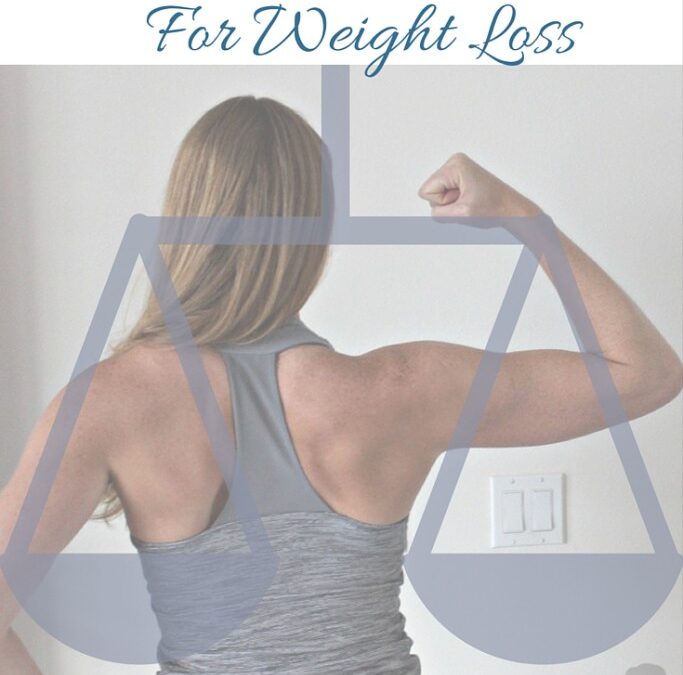
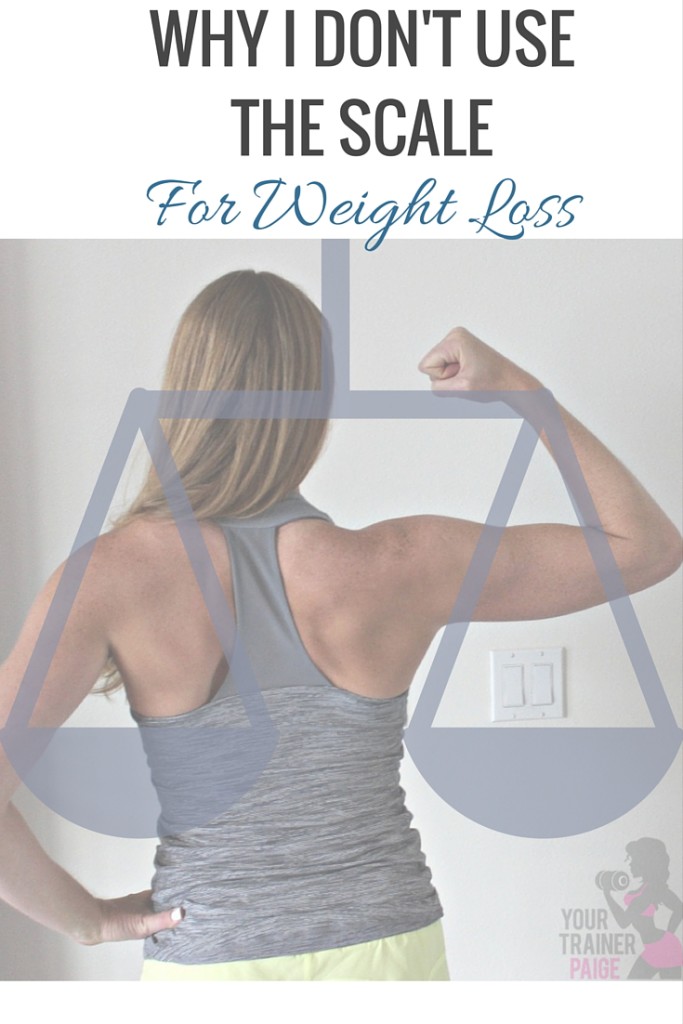
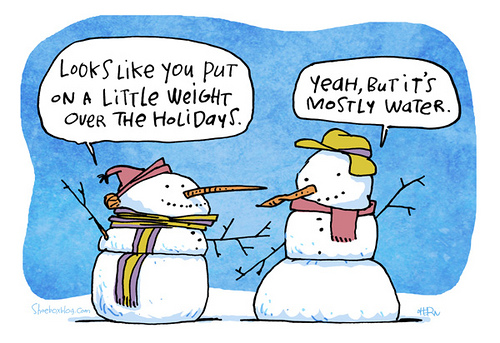
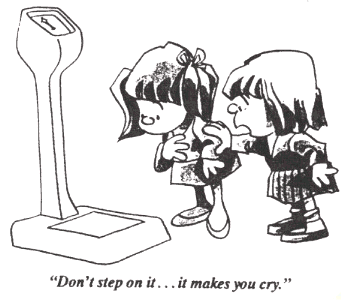
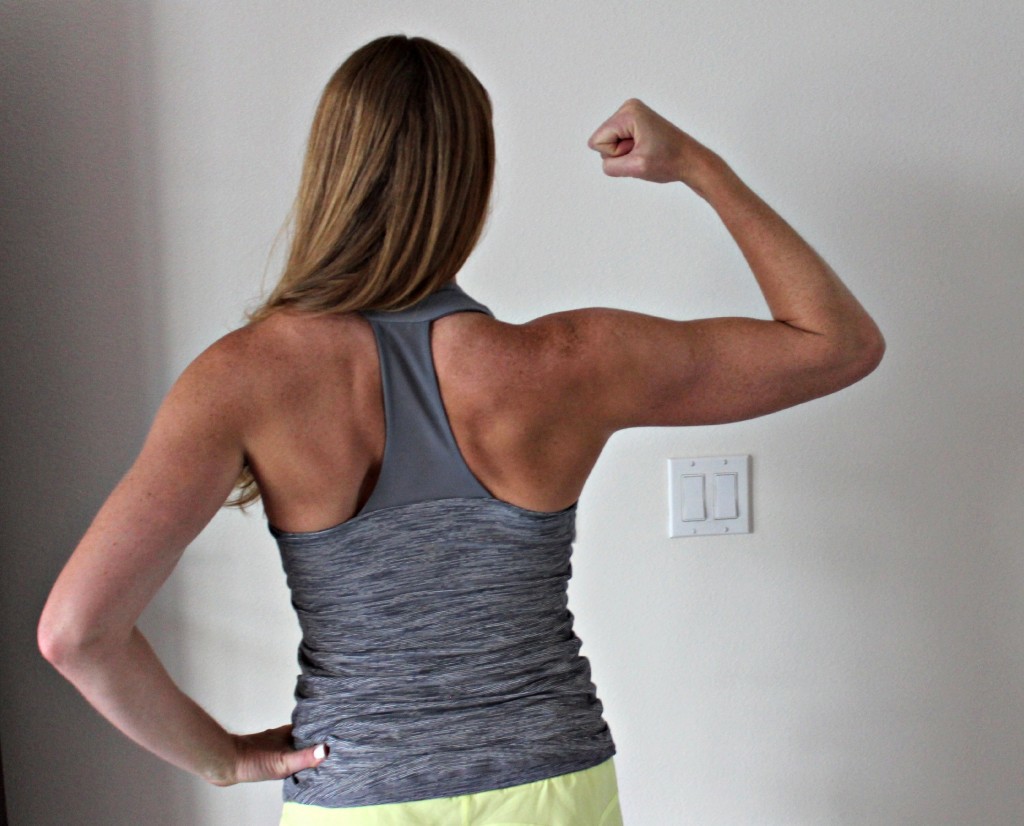
SPOT.ON!
I step on the scale VERY rarely because when I do step on it, it tends to send me into a spiral tizzy, even if before stepping on it, I wasn’t feeling bad about myself or how my body was looking or feeling. I find that it is best to just avoid it and go based on how I feel, look and my clothes are fitting.
Katie @ Talk Less, Say More recently posted…Let’s Talk: The Thigh Gap
Right?! As if we’re suddenly different than we were moments ago BEFORE stepping on it.
I recently finished a Pure Barre challenge. And while I GAIN 3 lbs I lost 12 inches over all! What a win!!!
I threw out the scale a long time ago. It’s not a full picture of how fit or healthy we are. When I went to the doctor last month, I was on crutches in a huge knee brace and the lady wanted to weigh me. I was like “um, no” why would you even try to weigh someone who has all this going on?
Megan @ Skinny Fitalicious recently posted…State of the Blog…September 2015
Good for you, Megan!! xo
Great post!!! I just posted a similar one yesterday 🙂 Love it. Screw the scale!
And I always like the way YOU think, girl! XO
Oh boy, do I remember the days of being a slave to the scale! Having a great day – just step on that scale and let it knock you down a little bit. It never failed to completely change my mind about how I was feeling.
When we moved last fall, the stupid thing DID NOT make it in the moving truck. #byebye
I even try not to see my weight at the doctor’s office. It’s just not relevant to me.
YAY! #goesinthetrash #dumpit
Very interesting post! I use the scale purely for determining the amount of food to eat, but I’m looking at different ways because I agree with everything you said. And altitude is another factor for weight – I retain water even just going up 10,000 feet!
Amen sista! I tell my mom all the time to stop using the scale and to start measuring! It doesn’t matter what you weigh, its more important lose fat than to lose weight!
BMI is a great tool for a quick assessment of health, but it doesn’t tell the whole story. Look at how many people are skinny fat? With terrible habits, but they are just thin? And then my husband, who is “heavy” by BMI, but all muscle? You should really be paying attention to adipose fat and sub abdominal fat.
It is good to use a scale. It is good indicator of progress of your weight. Of course, it should use occasionally and thus you will know if your diet has an effect.